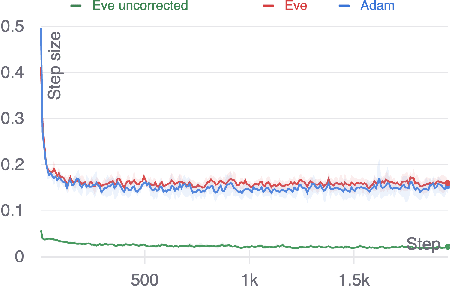Adaptive Optimization with Examplewise Gradients
Paper and Code
Nov 30, 2021

We propose a new, more general approach to the design of stochastic gradient-based optimization methods for machine learning. In this new framework, optimizers assume access to a batch of gradient estimates per iteration, rather than a single estimate. This better reflects the information that is actually available in typical machine learning setups. To demonstrate the usefulness of this generalized approach, we develop Eve, an adaptation of the Adam optimizer which uses examplewise gradients to obtain more accurate second-moment estimates. We provide preliminary experiments, without hyperparameter tuning, which show that the new optimizer slightly outperforms Adam on a small scale benchmark and performs the same or worse on larger scale benchmarks. Further work is needed to refine the algorithm and tune hyperparameters.
 Add to Chrome
Add to Chrome Add to Firefox
Add to Firefox Add to Edge
Add to Edge